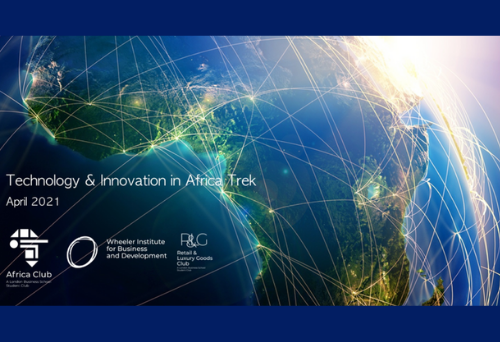Enablers for an inclusive pan-African success story
The 2021 Africa Business Summit – Re-thinking the way forward: Toward sustainable growth – sought to explore how Africa can maximise growth opportunities, as well as highlight key enablers for sustainable recovery and inclusive growth. The panel invited – Dr. Nick Hughes, co-founder, M-PESA and M-KOPA, Tolu Agunbiade, Regional Director, ALX, Dr. Sahar Nasr, former…











